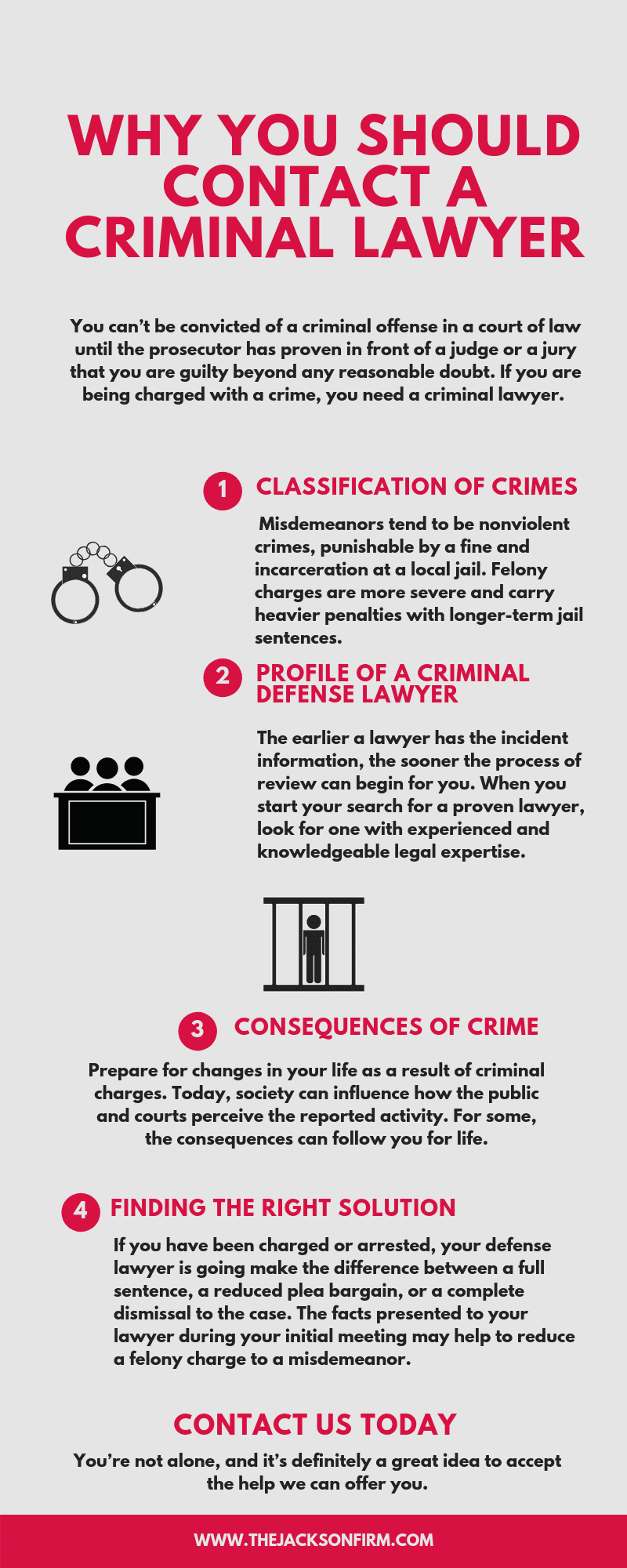The 4 Fundamental Kinds Of Criminal Charges And What They Mean For You
The 4 Fundamental Kinds Of Criminal Charges And What They Mean For You
Blog Article
Short Article Created By-Marshall McHugh
1. https://docs.google.com/spreadsheets/d/1nZbPsJhgwBe5VG9ZsqrWmF5CKvlcgrOQGg_Z2pNPTVE/edit#gid=2016210560 : small offenses, such as website traffic infractions, culpable by fines, but no jail time.
2. Offenses: offenses punishable by less than a year of prison time and penalties. Examples include disorderly conduct, minor theft, and DUI.
3. Felonies: extreme criminal activities like murder, rape, and heist, culpable by greater than a year behind bars.
4. Federal offenses: criminal activities that break government laws, such as tax evasion, counterfeiting, and kidnapping, punishable by government courts.
Did you recognize that over 10 million people in the USA face criminal costs yearly? Recognizing the different types of charges and their effects is critical.
In this short article, we'll discover the four basic kinds of criminal costs and what they imply for you. From misdemeanors to felonies, we'll break down the categories and shed light on the effects you may deal with.
So, let's dive in and empower you with the knowledge you require to navigate the criminal justice system.
Categories of Criminal Costs
Do you understand what various classifications of criminal fees mean for you? Understanding the various classifications can assist you navigate the lawful system and much better understand the possible repercussions you might encounter.
The initial classification is offenses, which are small offenses that typically result in penalties instead of prison time.
Going on to offenses, these are much more severe than infractions, but still bring less extreme penalties contrasted to felonies. Violations can cause fines, probation, or short-term jail time.
Felonies, on the other hand, are the most significant classification, including criminal activities such as murder, rape, and break-in. Sentences for felonies typically result in prolonged prison sentences and can have resilient impacts on your life.
Lastly, there are https://www.opb.org/article/2022/03/17/oregon-public-defenders-office-shortage-long-term-changes/ , which are criminal offenses that can lug the capital punishment.
It's essential to comprehend the classifications of criminal charges to ensure you're totally aware of the potential repercussions that lie ahead.
Comprehending Misdemeanor Charges
If you devote a violation, it might result in fines, probation, or short-term jail time. Misdemeanor costs are taken into consideration much less severe than felony costs, however they should not be taken lightly.
Misdemeanors usually entail non-violent offenses, such as petty burglary, assault and battery, or small medication possession. The punishment for a misdemeanor can vary relying on the jurisdiction and the details offense devoted.
In some cases, you might be required to pay penalties as a fine for your actions. Alternatively, the court might enforce probation, which entails routine check-ins and adherence to particular problems, such as attending counseling or staying clear of contact with certain people.
In more significant situations, a short-term prison sentence might be imposed, typically varying from a couple of days to a year. It is very important to speak with a lawyer to understand the prospective consequences of a violation charge and to construct a strong defense.
Exploring Felony Charges
When dealing with felony charges, you can anticipate extra severe charges and longer periods of imprisonment contrasted to misdemeanor costs. Felonies are taken into consideration one of the most serious types of criminal offenses and typically involve physical violence, substantial residential property damages, or offenses that position a risk to public security. Examples of felony charges consist of murder, rape, robbery, and drug trafficking.
The penalty for felony charges differs depending on the territory and the specific offense committed. As a whole, felony convictions can cause imprisonment for greater than one year, substantial fines, probation, and the loss of certain rights, such as the right to vote or possess weapons.
It's critical to seek legal representation if you're facing felony charges to ensure your rights are secured and to navigate the complex legal process effectively.
Consequences and Implications of Criminal Fees
With criminal charges, you can face severe charges and lawful consequences, so it is essential to comprehend the prospective implications. Right here are 3 key points to consider:
- ** Penalties and Monetary Effect **: Relying on the nature of the charges, you might be required to pay significant fines, restitution, or court charges. These economic problems can have resilient effects on your monetary stability and future leads.
- ** Jail time and Loss of Flexibility **: Criminal charges can cause prison time and even jail time. This means being divided from your loved ones, losing your task, and experiencing significant disruptions to your life.
- ** Criminal Record and Reputation **: A conviction can leave you with a long-term criminal record. This can affect your capacity to locate employment, secure housing, or get credit rating. Additionally, it can damage your individual and specialist online reputation, causing long-term effects.
Comprehending the repercussions and effects of criminal costs is important in order to make enlightened decisions and take appropriate action to protect your rights and future.
Verdict
So there you have it, the four standard kinds of criminal costs and what they suggest for you. Whether it's an offense or a felony, the consequences and ramifications can be extreme.
It is necessary to recognize the classifications and seek lawful advice if you find yourself encountering criminal fees. Bear in mind, in the eyes of the regulation, ignorance is no excuse.
Keep notified and make the ideal options to remain on the appropriate side of the regulation's rhythm and circulation.
